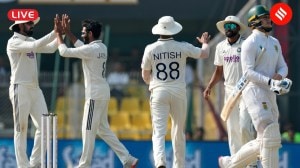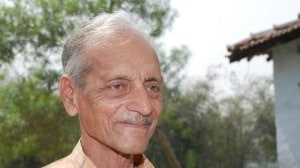The rise and rise of India’s kharabpatis
Last week saw a new addition to my lexicon of Hindi words. I read on the front page of a Hindi newspaper that a real-estate magnate has become India’s third kharabpati.

Last week saw a new addition to my lexicon of Hindi words. I read on the front page of a Hindi newspaper that a real-estate magnate has become India’s third kharabpati. I didn’t know what kharabpati meant. Upon reading the news item, I understood that it meant trillionaire. K.P. Singh, chairman of DLF, has joined the elite club of Indian kharabpatis, which until last week had only two members — Mukesh Ambani and his younger brother, Anil Ambani.
Lakhpati, karodpati, arabpati … and now kharabpati. At this rate, a new word will have to be coined to describe India’s richest, whose wealth-expansion defies all logic. Some might think that Indians joining the exclusive league of the Global Super-Rich is an occasion to celebrate. I think it is an occasion to ask questions. We must question the prevailing irrational economic system that is allowing a few individuals to increase their personal or family wealth to such stratospheric levels when the same system condemns a large section of Indians to live in abject poverty, devoid of even basic human dignity.
To get an idea of how irrational the system is, consider this: the personal stake of Singh, who owns 88.24 per cent of DLF, appreciated by over Rs 22,000 crore since the company’s recent listing. Singh may be a highly able entrepreneur, but isn’t it crazy that a person gets richer by Rs 22,000 crore in a matter of weeks?
A few months ago, Prime Minister Manmohan Singh posed a highly relevant question about the undesirability of skyrocketing CEO salaries, American-style, in India. The backlash from the corporate sector was so swift and strong that there was hardly any worthwhile debate on the issue. The prime minister didn’t follow up, nor did he receive any support from the political establishment. In the US itself, the growing rich-poor divide is becoming a source of widespread social discontent. And here we are, blindly copying an inequity-inducing model that is a sure recipe for disaster. Whatever has happened to our constitutional ideal of socialism?
Although the debate that the prime minister sought to initiate ended even before it began, a far more important debate that needs to take place is about how promoters of companies juggle the market, resort to clever “financial re-engineering”, and work their way out of a fuzzy system of ownership to expand their personal and family wealth. Even the most diligent of spiders would be put to shame by the intricate web of holdings and cross-holdings which promoters weave to convert company wealth into their own. Many strands of this web of ownership are linked to shell companies with fictitious businesses and trusts with bogus charters. The richer the promoters, the more manipulative they are. Why has this aspect never been investigated by government agencies and discussed by political parties?
Manipulation happens also by ‘managing’ the policy environment and decision-making processes in the government. Five years ago, BSNL and MTNL were India’s leading telecom companies. Being PSUs, their wealth belonged to the public. That their wealth remained unlocked is another matter. Today, both BSNL and MTNL have been overtaken by private telecom companies, in market share as well as in market value. One shouldn’t be surprised if they further slide downhill the way Indian Airlines and Air India have. The shrinking of public wealth in our PSUs has been taking place due to systematic political interference and policy disablement, both facilitated by the culture of ‘suitcases’ jointly promoted by unscrupulous private entrepreneurs and corrupt netas.
A glaring example of this is the UPA government’s recent scandalous flip-flop over BSNL’s order for GSM equipment to roll out 4.5 crore new lines. A Navaratna company is thus being reduced to ashes, thanks to internal family squabbles in the DMK. Who benefits if BSNL goes down? Obviously, private telecom companies, whose promoters have seen their wealth shoot up by billions in the last few years. Similarly, who benefited from the recent top-level instability and wrangling in ONGC, another Navaratna company? Obviously, its private sector rival, whose promoter is India’s first and biggest kharabpati.
But some will ask: why should common citizens worry about all this? After all, aren’t they getting better services from private telecom companies, private airlines, private builders etc? Certainly, they are. As our experience in one failed PSU after another has shown, government is a lousy performer when it comes to running companies, especially in the service sector. Hence private enterprises must be promoted to create wealth for the nation and to provide better services and products to the people in an environment of transparent and well-regulated competition. However, in doing so, the political leadership has the responsibility to ensure that wealth creation does not become skewed in favour of a small minority. No less important, it has the duty to prevent overambitious entrepreneurs from resorting to unethical and manipulative practices to corrupt the entire system.
But what if the political class itself becomes a patron, protector and beneficiary of the corrupt system? What should citizens do when some political leaders convert politics into a business and dream of becoming arabpatis, while helping some businessmen to become kharabpatis? It’s a question all democracy-loving people must seriously ponder over.




- 01
- 02
- 03
- 04
- 05



























